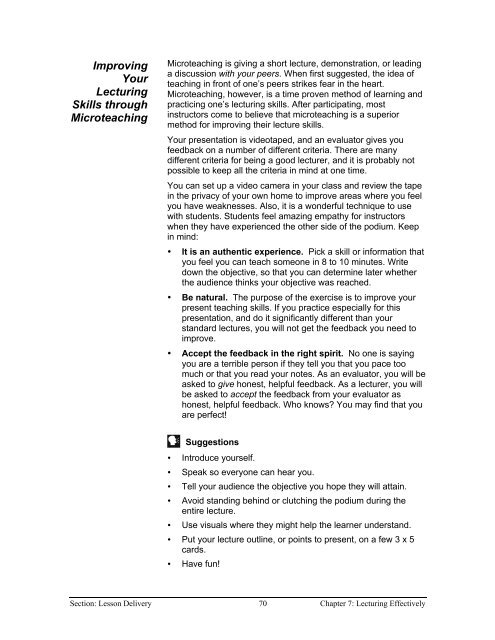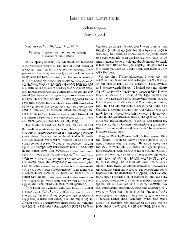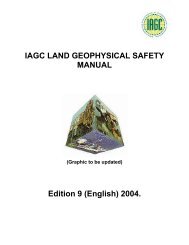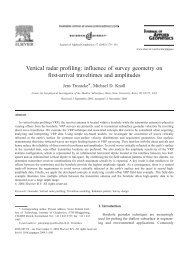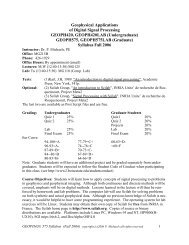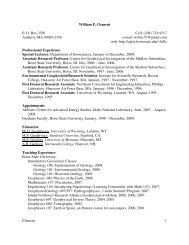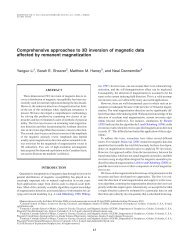Chapter 9 - Instructional Media: Chalkboards to Video - CGISS
Chapter 9 - Instructional Media: Chalkboards to Video - CGISS
Chapter 9 - Instructional Media: Chalkboards to Video - CGISS
You also want an ePaper? Increase the reach of your titles
YUMPU automatically turns print PDFs into web optimized ePapers that Google loves.
Improving<br />
Your<br />
Lecturing<br />
Skills through<br />
Microteaching<br />
Microteaching is giving a short lecture, demonstration, or leading<br />
a discussion with your peers. When first suggested, the idea of<br />
teaching in front of one’s peers strikes fear in the heart.<br />
Microteaching, however, is a time proven method of learning and<br />
practicing one’s lecturing skills. After participating, most<br />
instruc<strong>to</strong>rs come <strong>to</strong> believe that microteaching is a superior<br />
method for improving their lecture skills.<br />
Your presentation is videotaped, and an evalua<strong>to</strong>r gives you<br />
feedback on a number of different criteria. There are many<br />
different criteria for being a good lecturer, and it is probably not<br />
possible <strong>to</strong> keep all the criteria in mind at one time.<br />
You can set up a video camera in your class and review the tape<br />
in the privacy of your own home <strong>to</strong> improve areas where you feel<br />
you have weaknesses. Also, it is a wonderful technique <strong>to</strong> use<br />
with students. Students feel amazing empathy for instruc<strong>to</strong>rs<br />
when they have experienced the other side of the podium. Keep<br />
in mind:<br />
• It is an authentic experience. Pick a skill or information that<br />
you feel you can teach someone in 8 <strong>to</strong> 10 minutes. Write<br />
down the objective, so that you can determine later whether<br />
the audience thinks your objective was reached.<br />
• Be natural. The purpose of the exercise is <strong>to</strong> improve your<br />
present teaching skills. If you practice especially for this<br />
presentation, and do it significantly different than your<br />
standard lectures, you will not get the feedback you need <strong>to</strong><br />
improve.<br />
• Accept the feedback in the right spirit. No one is saying<br />
you are a terrible person if they tell you that you pace <strong>to</strong>o<br />
much or that you read your notes. As an evalua<strong>to</strong>r, you will be<br />
asked <strong>to</strong> give honest, helpful feedback. As a lecturer, you will<br />
be asked <strong>to</strong> accept the feedback from your evalua<strong>to</strong>r as<br />
honest, helpful feedback. Who knows You may find that you<br />
are perfect!<br />
Suggestions<br />
• Introduce yourself.<br />
• Speak so everyone can hear you.<br />
• Tell your audience the objective you hope they will attain.<br />
• Avoid standing behind or clutching the podium during the<br />
entire lecture.<br />
• Use visuals where they might help the learner understand.<br />
• Put your lecture outline, or points <strong>to</strong> present, on a few 3 x 5<br />
cards.<br />
• Have fun!<br />
Section: Lesson Delivery 70 <strong>Chapter</strong> 7: Lecturing Effectively


